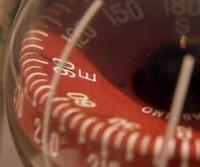On the other hand, I do not have the navigation gene. For me, it takes a lot of effort and concentration to find my way around. Fortunately, I am quite observant so I often dive using natural navigation (for example, by following natural markers, or using the sun when possible). In lakes, sometimes I would follow a weed line or a contour.

Using a compass did not come easily for me. I had to really work on my compass navigation skill. As the old say goes – practice makes perfect. The more you use the compass, the better you get at it. On dives I sometimes force myself to follow a compass heading, even if I know the area perfectly well and don’t need the compass. It is important to keep compass skills fresh.
Recently, I was talking to fellow instructor about using GPS to mark some of our regular diving spots. As most people know, GPS does not currently have a strong enough signal to penetrate into water (beyond say a few inches). So what my fellow instructor was going to do was attach a GPS unit to the dive flag and circle around the spots of interest. Later the instructor would be able to get a fairly good GPS location by using the circles on the GPS screen.
There is no doubt that technology is making diving safer and more enjoyable. I guess the day will come when divers will have some kind of unit that will work like GPS systems in cars. However as in most things, it pays to be able to navigate using the compass and natural navigation. The same can be said for tables and dive computers. A good diver will always be able to plan a dive without a computer. The computer should be used as an extra safety factor, but a responsible diver, should be able to plan the dive by using tables. It is vital to understand the relationship between depth, time and nitrogen loading.
By far, the best piece of technology that a diver has is his or her brain.

No comments:
Post a Comment